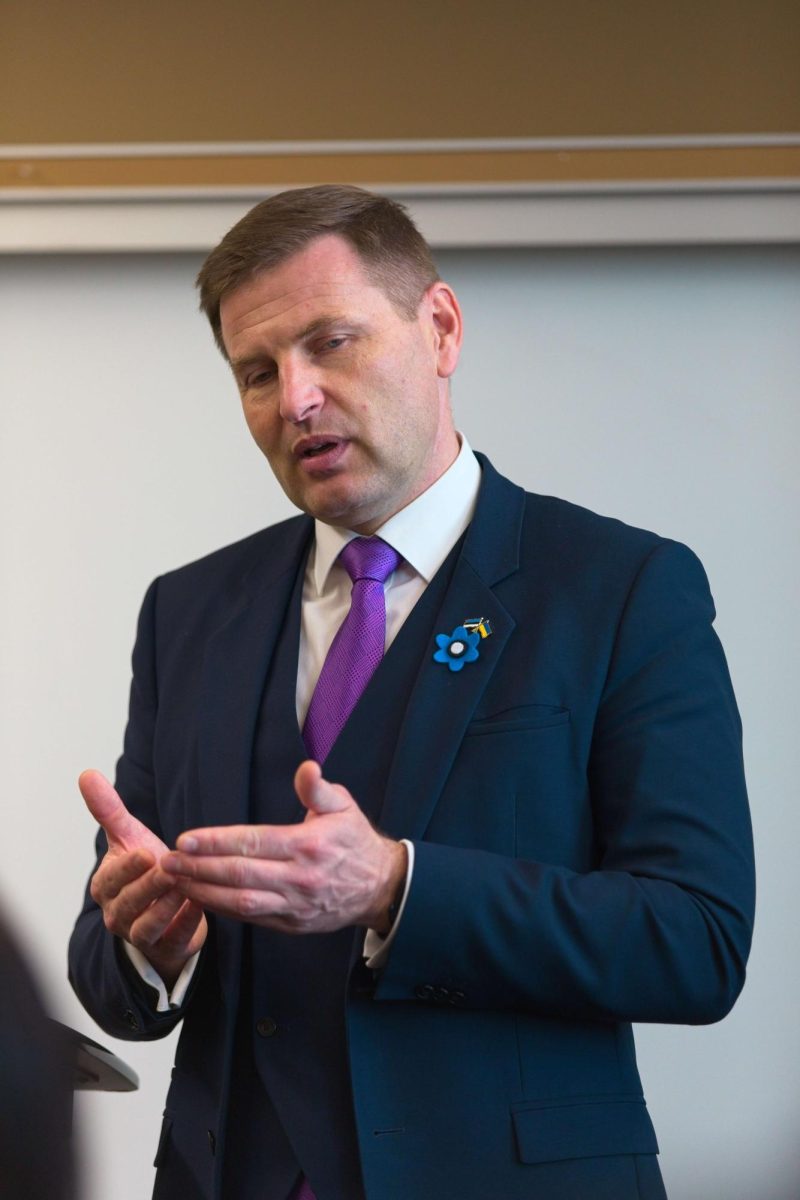Indiana Gov. Mike Pence signed a bill into law on March 26, which will take effect in July, that would allow religious institutions to object to offensive actions, which Associate Professor in Religion Laura Hartman said is grounded in the ideal of religious equality.
“My understanding is that (Indiana) wants to make sure that people who have a religious objection to doing something for their business don’t have to do it, that their religious rights are protected,” said Hartman. “And that’s good.”
But the bill, called the Religious Freedom Restoration Act, has seen backlash in the state as well as nationally, since some people think the law is too vague and promotes discrimination against LGBT people. Arkansas state legislature also passed a bill on religious freedom Tuesday.
The bill prohibits state laws that “substantially burden” a religious institution, organization or person from following their religious beliefs, according to the Associated Press.
“Religious freedom is really important and this law is intended, I think, to protect all kinds of religious freedoms like that,” said Hartman. “But here’s why there’s a real problem: it’s because Indiana doesn’t have sexual orientation or gender identity as a protected class.”
Hartman, who went to college in Indiana, said most U.S. states protect certain classes against discrimination in their legal language, such as race and veteran status. But Indiana is limited in protecting sexual orientation and gender identity as a class. Illinois and Iowa have class protection pertaining to sexual orientation and gender identity.
“It’s great to have religious freedom, but if you don’t have protection for those categories, then it does open the door for some of this discrimination to happen, and that’s what people are really worried about,” said Hartman.
The bill is the first of its kind in the country, and Pence, a republican, insists the bill is meant to promote inclusion of religious beliefs.
Yet organizations, performers and people on social media continue to protest and speak out against the language of the bill. The Chicago band Wilco canceled a concert in Indiana due to its opposition to the bill, and actor Nick Offerman canceled a show he was to perform with his wife in the state.
The NCAA, which hosts the Final Four this weekend in Indianapolis, released a statement last week expressing concern over the bill and how it will affect its workforce in the future, according to the New York Times.
Junior Peter Siepiora said he received an email from the Drum Corps International, which he has participated in, regarding the new legislation.
Siepiora said the announcement from the organization said, “Even though our finals are held in Indianapolis, we want you all to know that we completely support all of you and who you are as individuals, and we are not going to let this law impact your experience with us.”
He said the Indiana bill is a retrograde for LBGT rights.
“I understand where the government is going towards expression of religious freedom and supporting everyone’s right to believe in whatever they want to believe in,” he said. “However…it’s completely vague and it’s not specific, and it leaves a lot of space for people to discriminate.”
Hartman pointed out that the bill is meant to protect mostly religious ceremonies rather than everyday businesses.
She used the analogy of a Jewish baker who might refuse to bake communion bread for a Christian ceremony.
“You wouldn’t say that person was prejudiced; you wouldn’t say that person is a bigot,” said Hartman.
She said drawing the line of when a religious person or organization is discriminating, though, can be tricky.
“When it comes to religious freedom, we have to be willing to support unpopular positions in the name of religious freedom, unless they’re actually crossing that line into actual discrimination.”
There is grounds for religious freedom to an extent, such as a nurse refusing to give an abortion due to religious reasons, Hartman said.
“On some level, I do like the idea that you shouldn’t be forced to do something you don’t agree with.”
Pence said in a press conference Tuesday that he would like to see the language in the bill clarified so that it would not allow discrimination against gays and lesbians.
according to the Washington Times.
And despite the vague wording in the bill, Hartman and Siepiora agree that change towards a more LGBT-accepting community is on the right track.
For Indiana, Hartman said the state is sometimes seen as “bigot central,” but that “it’s also a place that is learning to be more open.”
Here at Augustana, Siepiora said LBGT acceptance is great among faculty and most students, but that education and acceptance of different viewpoints is essential. As a candidate for the Student Government Association presidential elections, he said one way he would promote this acceptance of LGBT people is to increase Safe Zone training for faculty as well as students.
Similarly, Hartman said that backing down from LGBT discrimination is not going to work; nondiscrimination language in state laws is one of the biggest steps towards equality.
“It is possible for religious freedom and nondiscrimination to co-exist,” said Hartman.
April 26, 2024

Fatima Martinez Gallegos • April 26, 2024

Rae Barry • April 26, 2024
Celeaciya Olvera • April 26, 2024
Religion law leads to LGBT concerns
April 1, 2015
Leave a Comment















































































































